Lib Dem manifesto 2024: what money policies have Sir Ed Davey's party pledged for general election?
Sir Ed Davey has centred the Lib Dem manifesto around the NHS and social care. The party also wants to overhaul capital gains tax.

Ruth Emery
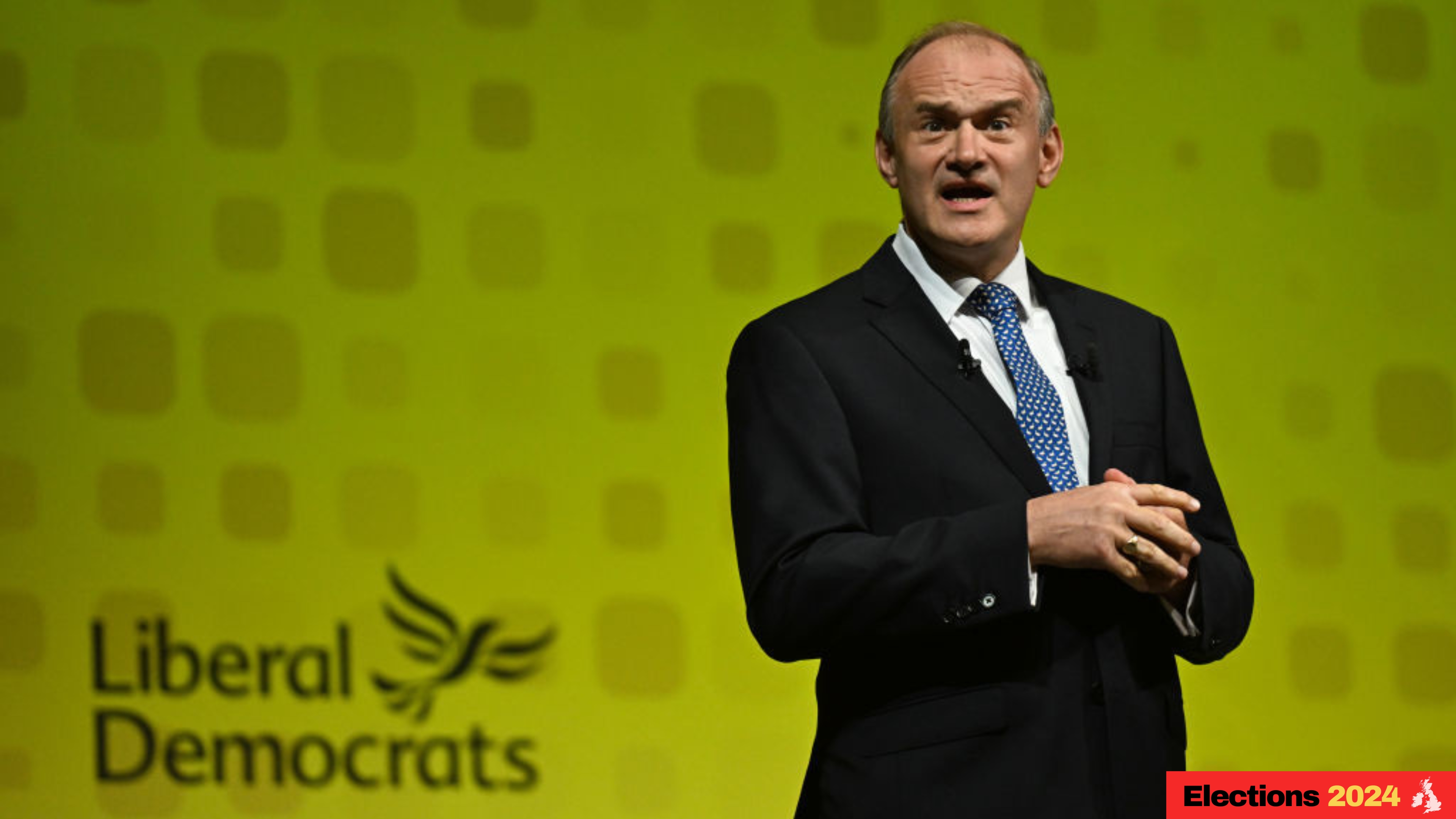
Get the latest financial news, insights and expert analysis from our award-winning MoneyWeek team, to help you understand what really matters when it comes to your finances.
You are now subscribed
Your newsletter sign-up was successful
Want to add more newsletters?
The Lib Dem manifesto for the 2024 general election has been launched by the party's leader, Sir Ed Davey.
Titled 'For a Fair Deal', the document is centred around how the Liberal Democrats believe the UK can become a fairer society. It accuses the Conservative Party of "neglect" and of being "out-of-touch", adding that voters have been "let down and taken for granted" by Rishi Sunak's party during its time in government.
The manifesto aims to fix the NHS and social care, repair the "broken relationship" between the UK and EU - a key dividing line between the Lib Dems and the two main parties - and reform democracy by introducing proportional representation. It also contains several financial pledges.
Try 6 free issues of MoneyWeek today
Get unparalleled financial insight, analysis and expert opinion you can profit from.

Sign up to Money Morning
Don't miss the latest investment and personal finances news, market analysis, plus money-saving tips with our free twice-daily newsletter
Don't miss the latest investment and personal finances news, market analysis, plus money-saving tips with our free twice-daily newsletter
Plans include closing capital gains tax loopholes, keeping the state pension triple lock, "properly" compensating WASPI women, taxing share buybacks, and raising the income tax personal allowance "when the public finances allow". There are also pledges to resurrect key elements of the Renter's Reform Bill, which was lost when the election was called, and raising house building targets to 380,000 a year.
It comes as the Liberal Democrats find themselves sitting fourth (on average) in the polls. But, despite being behind Nigel Farage's Reform UK party, the Conservatives' old coalition partners are expected to gain significantly more seats than the hard-right party.
Sir Ed Davey's party had 15 MPs in the House of Commons before parliament was dissolved on 30 May. Daisy Cooper is the Lib Dem deputy leader, while Sarah Olney is is Treasury spokesperson. The party says it has more than 90,000 members.
So, what money policies have the Liberal Democrats made in their election manifesto? We've rounded up the key points you need to know.
We have produced similar articles on what a potential Labour government could mean for your money, and what a Conservative win could mean for your finances. The UK's top two parties are set to reveal their manifestos this week.
How has the Lib Dem manifesto been received?
The Lib Dem manifesto (see the key pledges below) has so far had a mixed response from commentators. The general reaction has been that it is light on detail in some areas, and cuts a fine line between higher taxes and hoping something new will come along - although the party has definitely avoided a third possible path: austerity.
Paul Johnson, director of non-partisan think tank the Institute for Fiscal Studies (IFS), said there are “clear risks” that the party would be unable to raise £27bn a year (as it states in its costings document). He added that some of the tax raising measures the Lib Dems have settled upon “are an economically bad idea” - particularly its share buyback plans.
Johnson said: “[They] want to top up existing spending plans so that the state remains at around its current size, relative to national income - and hence considerably bigger than it was pre-pandemic. They propose a top-up to day-to-day spending plans to be funded by some big tax increases, on top of those currently in the pipeline.
“By focusing on taxing banks, energy companies and tech giants, many of these tax rises are intended to look ‘victimless’ - but of course they are not. We are already raising more from taxing companies than at any time in decades.”
He added: “Outside a few substantial pledges – notably the introduction of free personal care in England – the Liberal Democrats are promising a long list of small additional things they want the state to do. Together they would likely make it harder to address the big challenges with funding our core public services.”
Focusing on the share buyback tax, Russ Mould, investment director at AJ Bell, said it's “hard to predict” how companies would approach it. He added: “They could, in theory, simply increase their dividend payments and return cash via that mechanism instead, although that could raise the stakes during the next economic downturn as shareholders tend to take news of a dividend cut much harder than they do the announcement of a postponed or cancelled share buyback. They could conceivably invest more in their underlying businesses, although one change in tax may not be enough to shift their thinking on its own.”
But Mould suggested fears that firms could abandon the UK in the face of the tax might be too simplistic. He said: “The danger here could be that more UK plcs choose to leave London and head for New York. But it may not be quite so simple – at least if President Biden wins a second term in the White House in November.
“The USA already has a 1% buyback tax, which dates back to 2022 as part of the Inflation Reduction Act, and President Biden plans to hike that to 4% in his second term. If that happens it could persuade companies who are thinking of defecting to the New York Stock Exchange to think again.”
One of the Lib Dem manifesto’s other key pledges, preserving the state pension triple lock, has come in for criticism from the provider PensionBee. Beck O’Connor, its director of public affairs, said: “The state pension is a vital safety net for most retired households and must be preserved at a meaningful level. This is relevant not only for today’s pensioners but also for future generations.
“To preserve the State Pension, some form of index-linking is necessary as without decent and reliable rises to the state pension, it will be today’s young workers who suffer most when they reach their sixties and seventies, as personal and workplace pension savings are not currently at a level where they could even come close to replacing state pension benefits.”
But PensionBee said the Lib Dems’ plans to ensure gig economy workers don’t miss out on private pensions could help them to build up their retirement savings at an earlier date and reduce their reliance on the state pension in the future. It added that its commitment to Waspi compensation is “reassuring”.
Lib Dem manifesto pledges
Taxes
The Lib Dems have promised to “fund public services through fair taxes”, and to crack down on tax avoidance and evasion by bolstering the resources at HMRC’s disposal to the tune of £1bn a year - a move it believes could raise £7.2bn a year for the public purse by the end of the next Parliament. However, the party has also said it would pursue an income tax cut “when the public finances allow” by raising the personal allowance threshold.
One of its other headline policies is to “fairly” reform capital gains tax (CGT). It says it wants to “close loopholes exploited by the super wealthy” by adjusting CGT rates and “basing them solely on capital gains”. The party would also increase the CGT tax-free allowance from £3,000 to £5,000. This reform alone would raise more than £5.2bn a year for its investment plans by the 2028/29 financial year, it claims.
Sir Ed Davey’s party adds that it wants to reverse “Conservative tax cuts” for big banks by taking the Bank Surcharge and Bank Levy back to 2016 levels - a pledge it says would raise £4.3bn per year. It also plans a 4% tax on share buybacks by FTSE 100 companies (this would raise £1.4bn, it says), a “proper” windfall tax on oil and gas profits (£2.1bn), and a hike to the Digital Services Tax on social media firms and tech giants from a 2% rate to a 6% one (£2.1bn).
Other tax pledges the Lib Dems have made include a 16% “sewage tax” on water company profits (£260m a year by 2028/29), a new levy on tobacco company’s profit margins (£290m), and a “super tax” on private jets as well as the removal of their VAT exemption (£380m). The party claims it can raise £3.6bn by reforming the taxation of international flights so that frequent flyers pay more than “ordinary households” who take up to two return trips abroad a year.
The Lib Dems say they would review IR35 forms so that self-employed people would get fairer treatment. And it wants all products to carry a “short, clear version” of the terms and conditions they come with.
Pensions
The Liberal Democrats say they would implement “proper support” for people in retirement. Top of the party’s list of pension pledges is a commitment to maintaining the triple lock in its current form - despite warnings that the policy is becoming unsustainable to fund. Both the Conservatives and Labour have made the same promise, with the Tories announcing an extra layer to the policy, which it has called triple lock plus.
Another key pledge from the Lib Dems is to “fairly and properly” compensate WASPI women. However, it has not outlined a compensation package in its costings. The Parliamentary and Health Service Ombudsman said the cost of compensation could come in at £10.5bn.
Other aspirations the party has included in its manifesto include: ending the gender gap in private pensions, investing in state pension helplines to “ensure quicker responses to queries and resolution of underpayments”, and overhauling the processing system so that top-up payments are not lost. The party says it will also move to ensure gig economy workers don't lose out on pensions, and that it will require pension funds and managers to show that their portfolios are in line with the Paris climate change targets.
The Lib Dems also aim to help the elderly by introducing free personal care via a similar system to the one that operates in Scotland. This scheme would cover costs like nursing care and daily support, including hygiene and medication, for older and disabled people with high needs. They would also raise care workers’ pay, by introducing a carer's minimum wage, at £2 above the standard minimum wage. The party's costings suggest these policies could form part of an annual expenditure of up to £8.4bn on NHS and social care by 2028/29.
Investing
Should the Lib Dems get into power, they have made several pledges that could affect investors. One of the most eye-catching is a plan to forge a “clear, workable and well-resourced” framework for artificial intelligence (AI). It says this would give investors certainty while also promoting innovation.
Alongside this idea, Sir Ed Davey’s party wants to force all large firms listed on UK stock exchanges to implement net-zero goals, and report on their progress towards them. Financial services would face tougher regulation on the environment, with pension funds and managers required to demonstrate that their holdings are consistent with the Paris climate agreement. Regulators would be able to act if banks and large investors were not “managing climate risks properly”, the party states.
Meanwhile, all companies would have to have a “formal statement of corporate purpose” that factors in employee welfare and environmental standards, alongside a commitment to benefit shareholders.
The manifesto also sets out a plan to extend the remit of the ‘public interest test’ for when large or strategically important firms face a takeover by an overseas entity. This would include assessing the firm’s benefit to the UK economy, as well as the country’s workers and consumers. A Lib Dem government would also encourage listed firms with more than 250 employees to give their workers the right to request a shareholding in them. It will also push utility companies with a monopoly to adopt a public benefit model.

Ed Davey has been fostering a sense of fun on the campaign trail. But his party's manifesto strikes a serious tone
Energy
Under the Liberal Democrats, there would be a great deal of energy reform, the party’s manifesto suggests. It wants to make homes “warmer and cheaper” through a 10-year “emergency upgrade programme”. This scheme would see a rollout of free insulation and heat pumps for low-income households.
This scheme would form part of a wider effort to bring down energy costs for households. The manifesto says it also wants to create a heat pump installation scheme that covers the “real costs” of installation. The Conservative government’s Boiler Upgrade Scheme, which provided grants towards some of the costs associated with the installation of heat pumps, never met its targets.
The party has set its sights on driving "a rooftop solar revolution” by boosting incentives for households to get solar panels installed - for example, by guaranteeing a “fair” price for any electricity that gets sold back to the national grid. People would also be incentivised to buy EVs. The Lib Dems want it to be “cheaper and easier” to switch to them, and would resurrect the requirement for all new cars and small vans to be electric from 2030 onwards. It has suggested the cost of all of these measures would be covered by the £2.1bn it expects to raise through a heftier fossil fuel windfall tax.
These green energy pledges would be driven by the appointment of a “Chief Secretary for Sustainability in the Treasury”, who would work across government departments and with devolved administrations to push decarbonisation.
Property
The green revolution would also apply to the property market, if the Lib Dems get elected. As well as setting out a requirement for all new homes to be “zero-carbon”, the party will resurrect some of the key elements of the Renter’s Reform Bill. Landlords would be required to upgrade the energy efficiency of their lets to EPC C or higher by 2028.
An immediate ban on no-fault evictions would be brought in, with three-year tenancies becoming a default. A Liberal Democrat government would also create a national register of licensed landlords.
Other policies include a commitment to abolishing residential leaseholds and capping ground rents to a peppercorn fee. This would build on the watered down Leasehold and Freehold Reform Act, which managed to make it through Parliament before it was dissolved for the general election.
The Lib Dems added that they would implement more ambitious housing targets than Labour, with an aim to construct 380,000 new homes per year, including 150,000 social homes. The Conservative government has struggled to hit its house building targets over the last 14 years.
Its social housing plan would include a Rent to Own scheme that would allow people who cannot afford a deposit to own outright a property they have rented for a 30-year period, the manifesto says.
Public spending
The Lib Dems claim they can raise almost £27bn a year for the public purse by 2028/29 through their tax reforms (see ‘Taxes’ above). They also reckon they can save the taxpayer around £630m a year by cracking down on the use of external consultants in government.
One of its most eye-catching plans to raise tax revenues is to allow asylum seekers to work after three months. The party says this would cut the asylum backlog, saving the taxpayer almost £4.3bn whilst also bolstering tax and national insurance revenues.
And, in a clear dividing line with the two major parties, the Liberal Democrats have pledged to work more closely with the European Union. Their manifesto says they wish to remove "as many barriers to trade as possible" with the bloc, which the UK left in January 2020. Doing so would "help restore the UK economy" the party claims.
Overall, the manifesto makes a commitment to generate “stability, certainty and confidence” that it says are key to economic growth. It aims to do so by protecting the independence of the Bank of England and committing to accompany all fiscal events with Office for Budget Responsibility (OBR) forecasts.
Get the latest financial news, insights and expert analysis from our award-winning MoneyWeek team, to help you understand what really matters when it comes to your finances.
- Ruth EmeryContributing editor
-
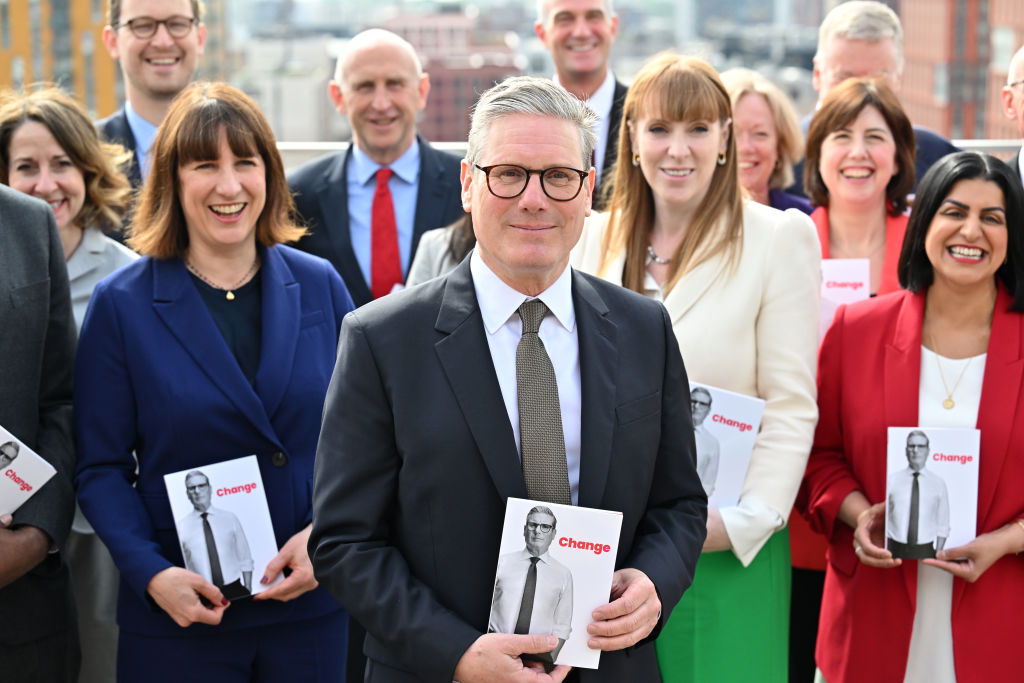 General election 2024: who’s in the Labour cabinet?
General election 2024: who’s in the Labour cabinet?A new Labour cabinet has been appointed by Keir Starmer after his party won the general election. Here’s the latest on who’s in it
-
 What does the Labour election win mean for your money? Key manifesto points after landslide
What does the Labour election win mean for your money? Key manifesto points after landslideNews The Labour election win was not as large as some polls had predicted. But the new government’s majority will mean it can enact significant changes.
-
 What would a Labour supermajority mean for capital markets?
What would a Labour supermajority mean for capital markets?The Conservative Party has warned that a Labour supermajority would be bad for democracy. But what impact could a big win for Keir Starmer have on the markets?
-
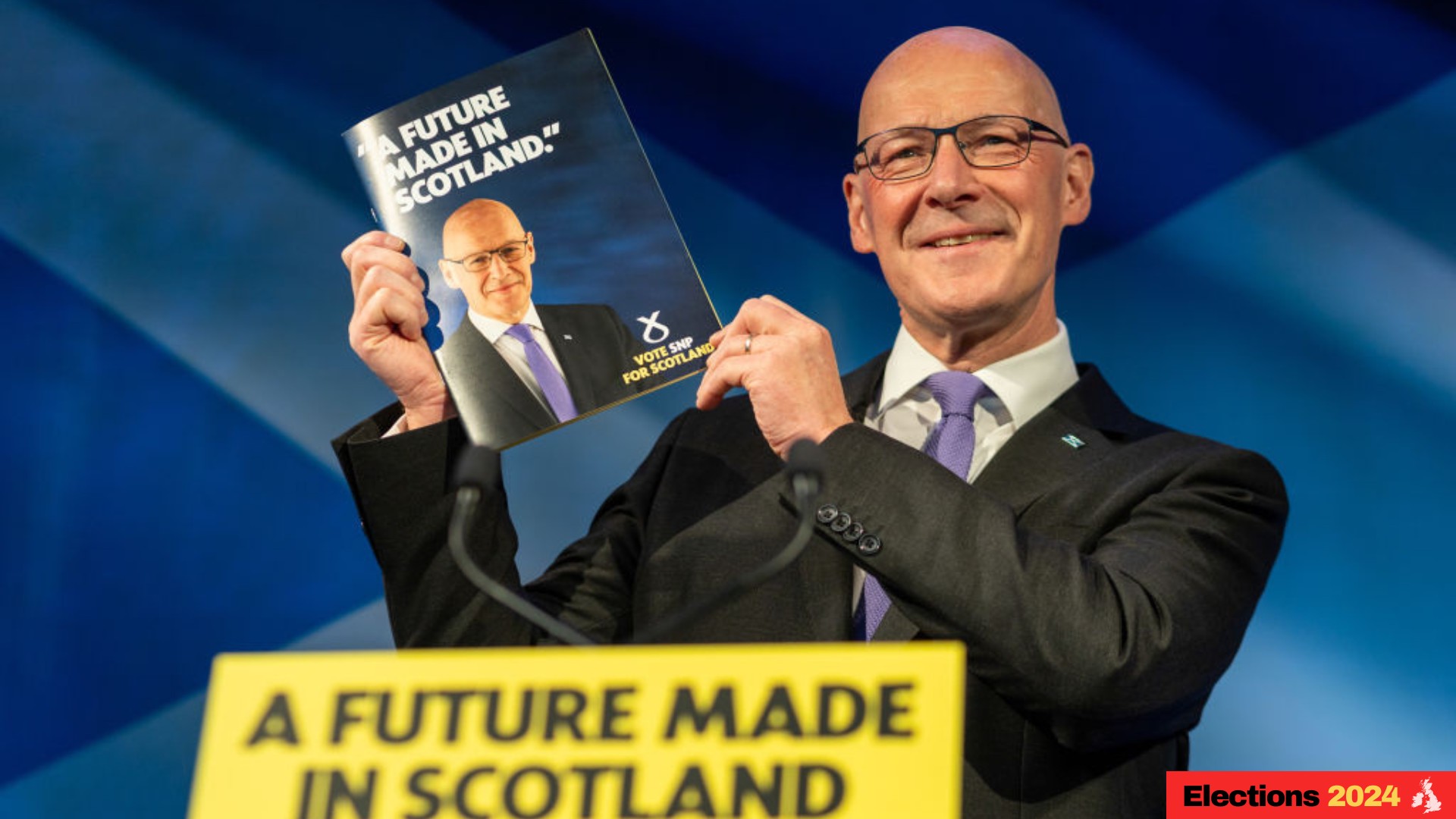 SNP manifesto 2024: what money policies did John Swinney announce?
SNP manifesto 2024: what money policies did John Swinney announce?The SNP manifesto has been launched in Scotland, and makes several key commitments, including a pledge to end austerity and a commitment to rejoin the EU.
-
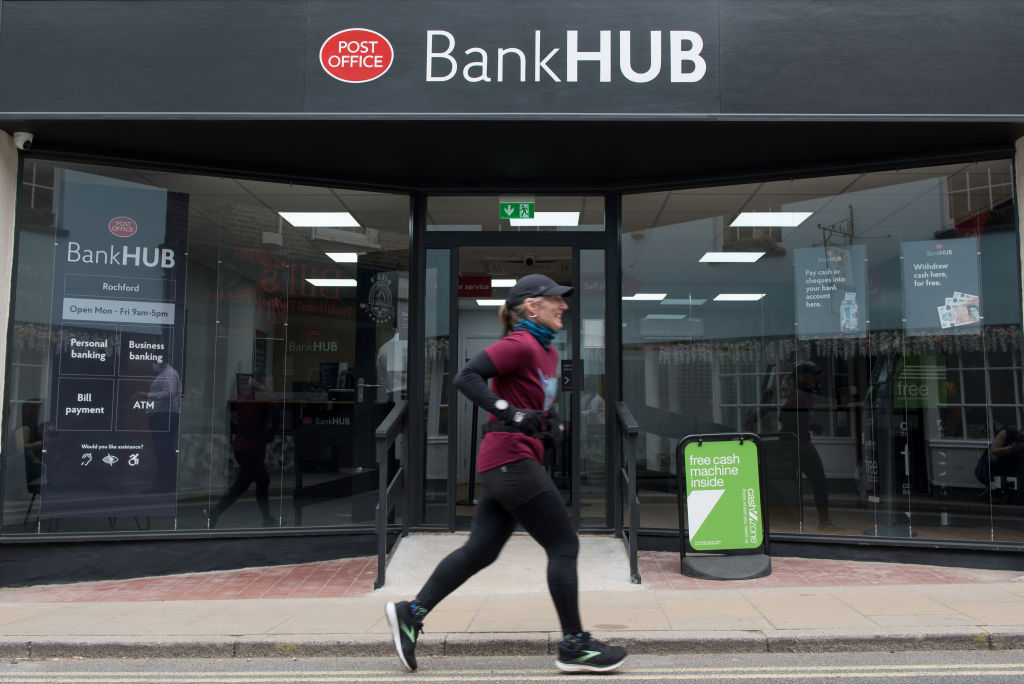 Labour pledges to open 'at least' 350 banking hubs over next Parliament
Labour pledges to open 'at least' 350 banking hubs over next ParliamentNews The Labour Party claims it will ‘bring banking back to the high street’ if it forms the next government after the 2024 general election.
-
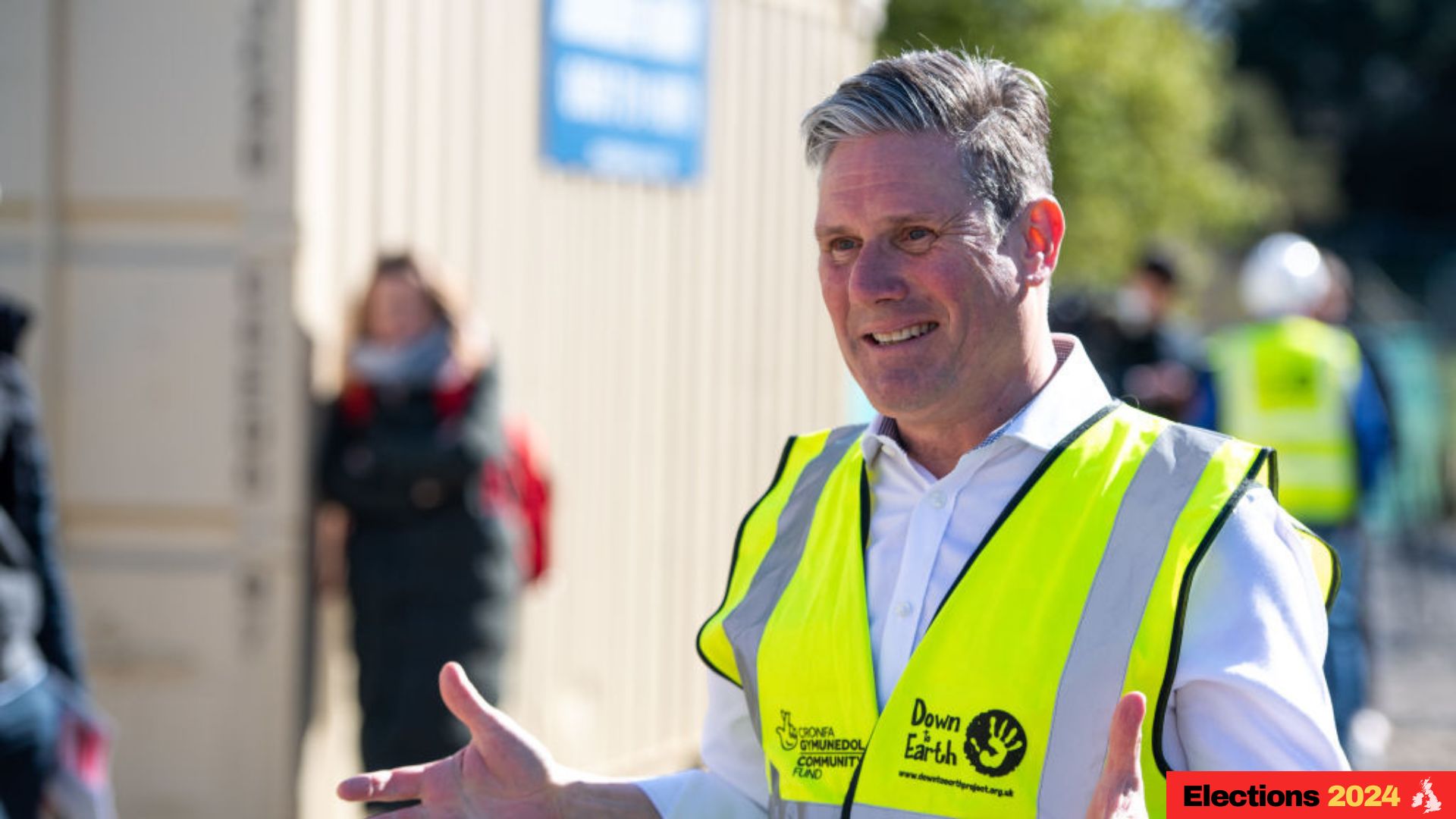 What does the Labour manifesto say about property? Key 2024 general election pledges
What does the Labour manifesto say about property? Key 2024 general election pledgesNews The Labour manifesto has made several promises around rental reforms, the leasehold system and housing market support. Here’s what a Keir Starmer government means for property.
-
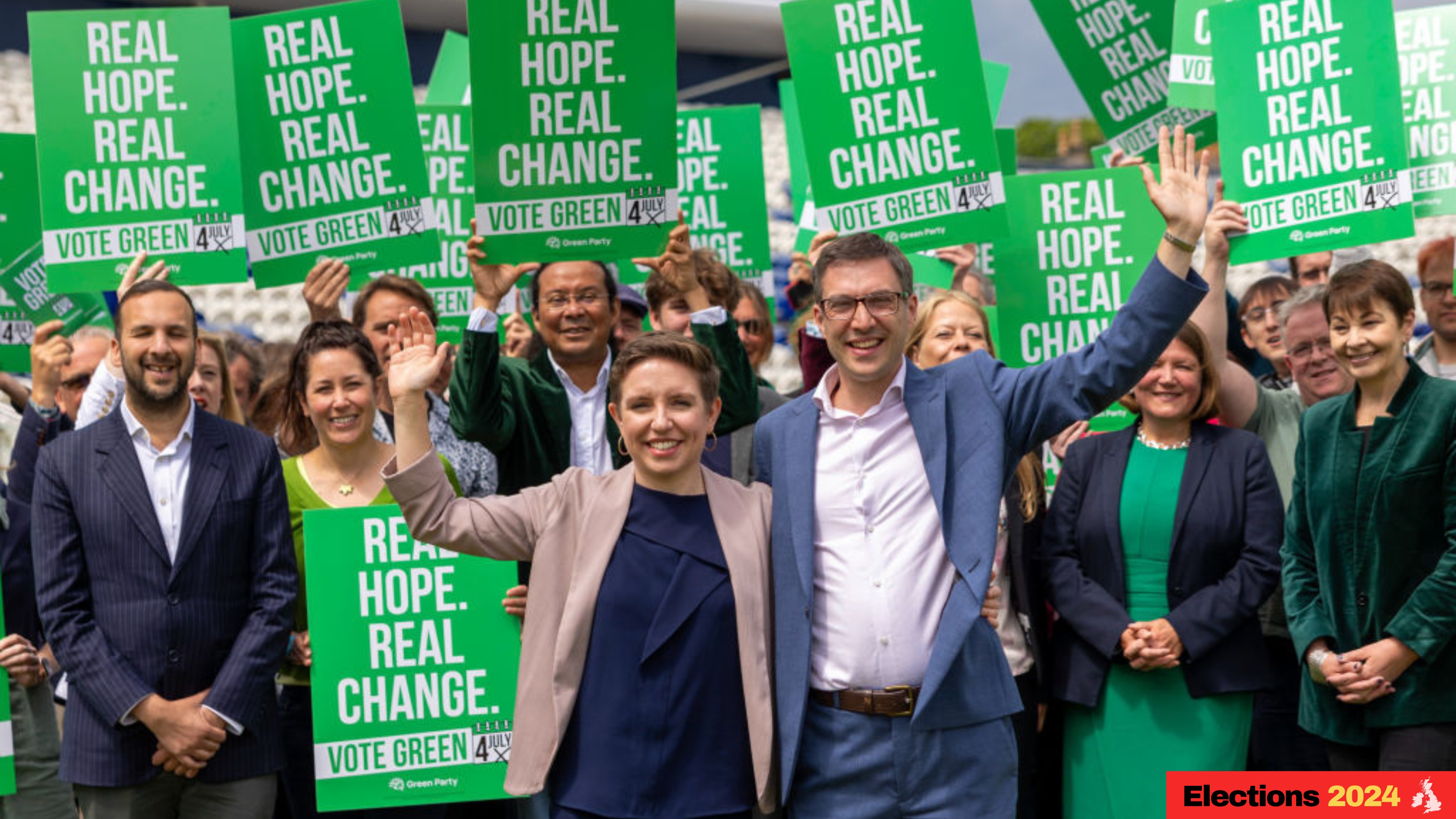 Green Party manifesto 2024: key personal finance general election policies
Green Party manifesto 2024: key personal finance general election policiesA Green Party government would introduce a wealth tax, increase National Insurance Contributions for high earners, and move towards a universal basic income.
-
 Conservatives pledge to raise high income child benefit threshold – how much could you save?
Conservatives pledge to raise high income child benefit threshold – how much could you save?News The high income child benefit charge threshold could be doubled to £120,000 if the Conservative Party wins the general election, Chancellor Jeremy Hunt has pledged.


